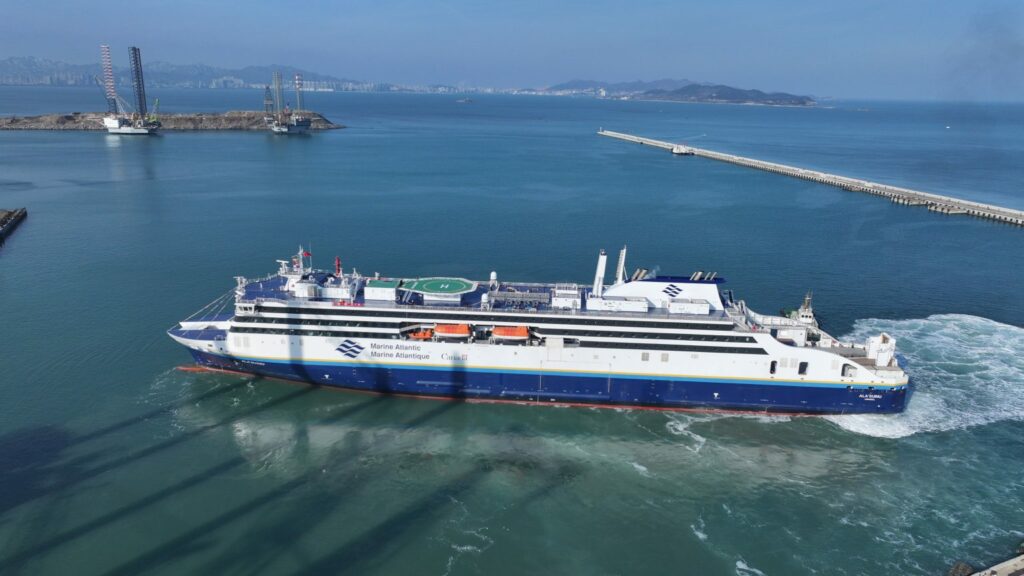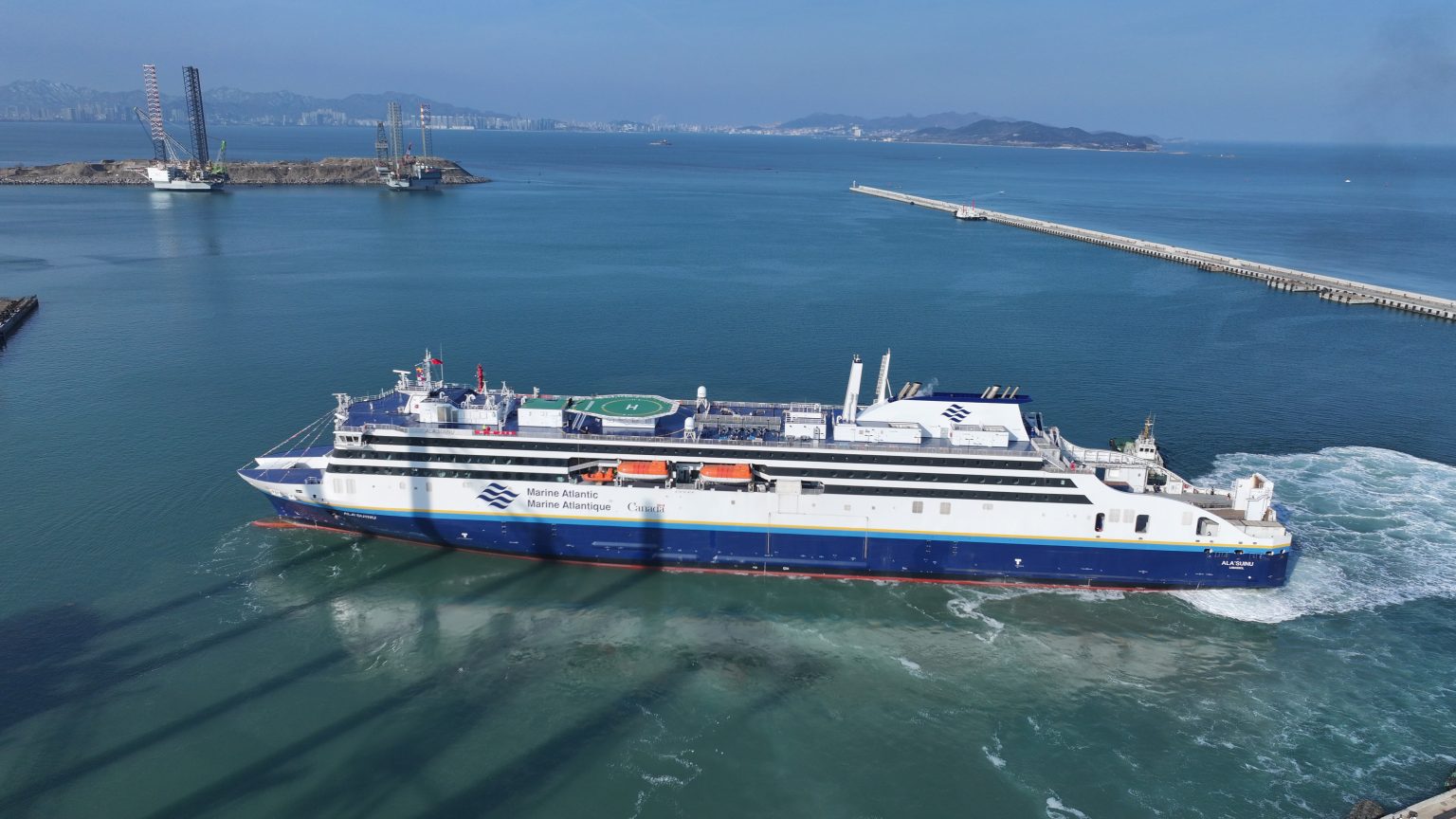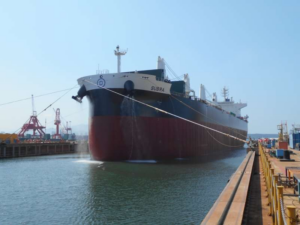
Sweden’s Stena RoRo has taken delivery of E-Flexer RoPax vessel for long charter to Canadian Crown Corporation Marine Atlantic.
It is the number ten vessel of the Stena RoRos E-Flexer series delivered to the company from CMI Jinling, Weihai shipyard.
The 203-meter-long vessel, named Ala’suinu, with a capacity for 1000 passengers and 2500 cargo meters freight, will be on a long charter agreement with the Canadian Marine Atlantic.
The charter period has now begun, and Marine Atlantic has the option to purchase the vessel after the period, as it is revealed by the president and chief executive of Marine Atlantic, Murray Hupman.
The E-Flexer series is based on a concept with larger vessels than today’s standard RoPax ferries and has an optimized design of the hull, propellers and rudders.
The vessels’ engines are of the multi-fuel type and can run on LNG, conventional marine fuel (MGO) or biodiesel. The vessels have been designed in line with future environmental requirements and, through their technical design, can meet both existing and future international requirements by a wide margin.
Furthermore, the vessels will be designed with the classification society notation “Battery power” which means that in the future the vessels will also be able to utilize batteries as a means of propulsion.
Stena RoRo currently has 13 confirmed orders for E-Flexer vessels, as well as two so-called “New Max” RoRo vessels, at CMI Jinling, Weihai shipyard. A total of five vessels will now be under construction at the shipyard at the same time. With the latest delivery ten ships have now been delivered.
Per Westling, managing director, Stena RoRo said: “These vessels are a further development of our previous RoPax concepts, where the focus on sustainability and future-proofing has been a top priority.
“In this vessel, another dimension of sustainability has been added as the vessel has been designed to make a minimum of noise in the surrounding sea for the benefit of the sensitive underwater fauna of Canada’s coasts. Multi-fuel engines and battery hybrid technology further contribute to minimizing Marine Atlantic’s environmental impact.”



